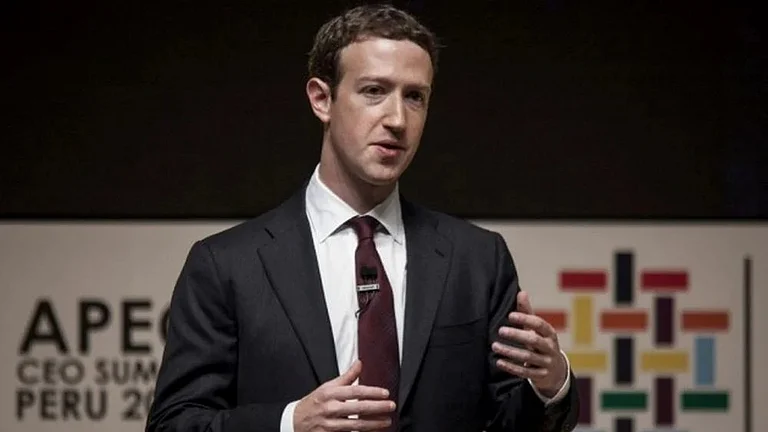The tussle between the Competition Commission of India (CCI) and social media platform Meta has been going on for a while. The latest update about the same is that Meta is set to file an appeal against CCI’s fine of Rs 213 crore. The fine has been imposed with regards to its WhatsApp privacy update.
The recent judgment, experts indicate, has a wider implication on several aspects, including consumer rights and data privacy.
Before delving into the significance of the order, let’s first understand what it is. WhatsApp came up with its privacy policy in 2021. As per the policy, the social media platform can share user data with Meta, its parent company. The policy received criticism from the beginning, with several users shifting to other social media platforms such as Signal and Telegram. WhatsApp did come up with an explanation about the same in 2021 and mentioned in a blog post, “We want to be clear that the policy update does not affect the privacy of your messages with friends or family in any way.”
The social media platform highlighted that the changes pertain to optional business features on WhatsApp and offer greater transparency regarding how data is collected and used.
Now, let’s come to the CCI order. The penalty has been imposed by the company for abusing its dominant position. To add to it, a cease-and-desist direction has also been imposed by the commission.
According to the commission, WhatsApp's 2021 policy update, presented on a 'take-it-or-leave-it' basis, imposes unfair conditions under the Act. This is because it forces all users to accept broader data collection terms and data sharing within the Meta Group, with no option to opt out. Neither the Competition Act nor the decisional practice of the CCI provide a definition of an ‘unfair condition’, said Shivanghi Sukumar, Partner, Axiom 5.
CCI's Judgment Addresses Data Privacy, Say Experts
“In this case, the CCI’s findings on unfairness related to user choice and user autonomy: in its order, it found that users were effectively coerced into accepting the expanded data collection terms and the sharing of that data without the ability to opt out. Due to the lack of viable alternatives, the CCI found that users were effectively coerced into accepting the update, which undermined their autonomy over their data,” added Sukumar.
The commission also highlighted that Meta sharing data with its other companies for purposes that are beyond providing WhatsApp service makes it harder for competitors to enter the display ad market. This is in violation of Section 4(2)(c) of the Competition Act. The act prohibits a firm from abusing its dominant position. With its new ruling, the commission has barred the social media platform from sharing data with other Meta companies.
Now, Meta in its reply mentioned that the 2021 update did not change the privacy policy of people as they were given a choice to use the feature. “As a reminder, the 2021 update did not change the privacy of people’s personal messages and was offered as a choice for users at the time. We also ensured no one would have their accounts deleted or lose functionality of the WhatsApp service because of this update,” a Meta spokesperson reportedly said in a statement.
Experts suggest that this judgment by the CCI is significant as it addresses the intersection of data privacy, competition law, and market practices.
“While privacy concerns are important, this case focuses on how Meta leverages user data in the market, particularly in the advertising and e-commerce sectors. The Competition Commission's ruling highlights how this data exploitation harms market competition,” said Abhivardhan, Chairperson and Managing Trustee, Indian Society of Artificial Intelligence and Law.
Digital Competition Bill
Experts also add that the Digital Competition Bill is another important piece of legislation that is relevant in this context. The intent of the bill is to regulate anti-competitive behaviors by large digital companies. The draft for the same was released in March this year by the Ministry of Corporate Affairs (MCA). The bill is laid out in an ex-ante framework (based on future outcomes).
“The Digital Competition Bill, which is still in draft form, does not yet establish clear thresholds for what constitutes monopolistic behavior. However, the recent ruling against Meta provides valuable insight into how future regulation, like the Digital Competition Bill, could address these issues,” added Abhivardhan.
With regards to Meta challenging the CCI verdict, experts indicate that the social media platform has to file an appeal to the National Company Law Appellate Tribunal (NCLAT). Following this, the fairness of the fine and the competition concerns raised by the CCI will be determined by the NCLAT.
“If NCLAT upholds the CCI’s decision, Meta can escalate the matter to the Supreme Court of India, which will provide a final determination on whether the fine and CCI’s ruling comply with Indian law,” said Kinjal Champaneria, Partner Solomon & Co.
Further, during the appeal process, Meta may seek a temporary stay on the fine or any directives issued by the CCI. If granted, this would suspend the enforcement of the ruling until the appeal is resolved, added Champaneria.
With regards to the significance of the case, experts note that this case underscores the CCI's robust enforcement track record and ignites a larger discussion on the future of privacy and competition. At a time when social media platforms play a significant role in our lives, it becomes important to start a wider discussion between privacy rights and the usage of data. WhatsApp for instance, has more than 530 million active users in India. Meta India head Sandhya Devanathan reportedly said in September that WhatsApp runs in India. Devanathan further added that India is one of the key markets for WhatsApp business.
This comes at a time when the tech giant also threatened to leave the country in April this year. This was in relation to India's 2021 IT rules for social media intermediaries, which indicate that the apps should "trace the first originator of the information." The social media platform, on its part, highlighted that they would leave the country if they were asked to break the end-to-end encryption as it would impact the privacy of users. It will be interesting to see how the social media platform’s dynamics evolve in this country.
































